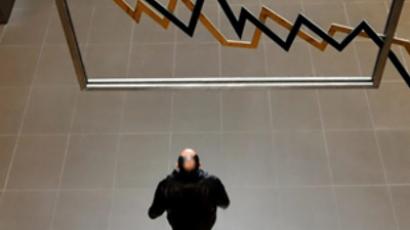Euro continues slide as markets look for concrete measures
With the euro having slumped to its lowest level in nearly four years against the US dollar, analysts say the markets are selling off until they are convinced that fiscal discipline is restored.
Trading at $1.2321 to the US dollar in mid Wednesday trade the Euopean currency is near its lowest level since early 2006. It has slumped in the wake of ongoing concerns about the debt crisis in Greece and the potential risks that other nations – particularly Spain, Portugal, Ireland and Italy – could be caught up in the contagion.
It has become obvious that the fiscal regulations that allowed these nations into the Eurozone have been fudged, with structural budget deficits, and large public sectors leaving them exposed to tightening debt markets.
Speaking with Business RT, Steven Meehan the head of UBS Russia and CIS, said he expects the Euro will survive, but the markets are sceptical over the outcome of the Eurozone bailout.
“I think the euro will be saved, however thus far aren’t completely convincing, and I think that that’s the markets perception. I think the market perceives there needs to be more concrete implementation of direct fiscal conservative measures, to make sure that the euro members do adhere to the policies underlying the euro. Over the past five years, I think theres something, approximately 80% of the countries underlying the euro violated GDP, debt as a percentage of GDP policies, and that needs to change and there needs to be real penalties, real restrictions on fiscal policy. What needs to happen is the political and fiscal policy need to connect on implementation. I don’t think the market sees concrete measures for that implementation, hence the volatility that continues.”
Meehan added that a potential euro collapse needed to be avoided for the impact it would have across the globe.
If the euro fails we’re all in trouble, clients, myself, RT and others. I don’t think we can afford for that to happen.
Read also – Each EU Government Proposed to Levy Tax on Its Banks













